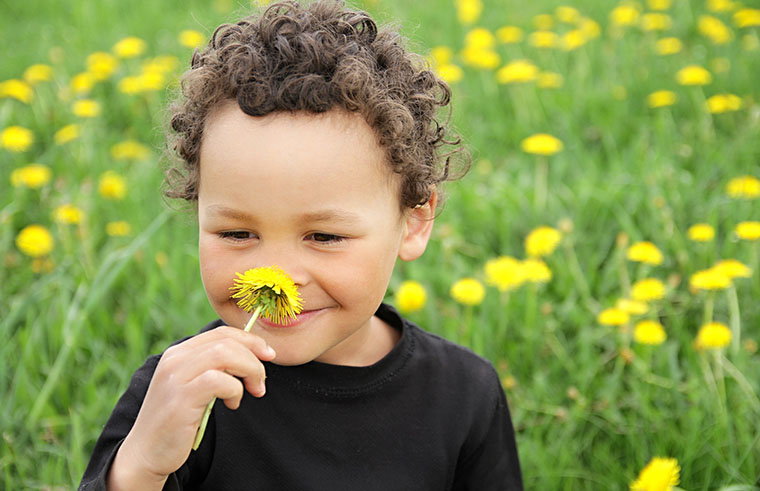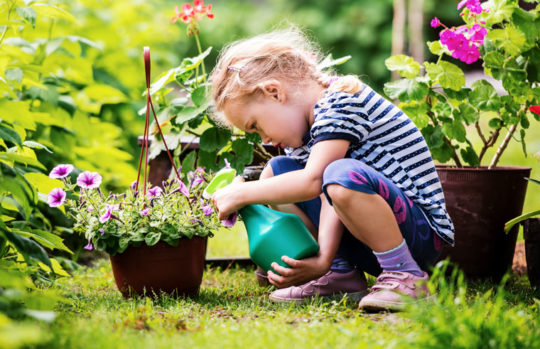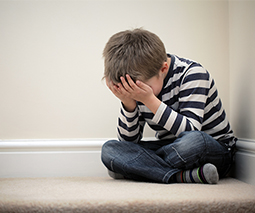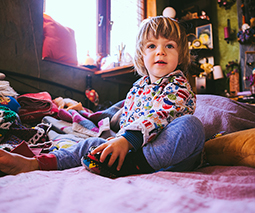8 ways to teach young kids patience and appreciation

I call children of today the insta-generation because they want and expect everything INSTANTLY. They have zero patience and appreciation, and it’s driving me mad! So here are some new approaches I’m trying to help my kids be less self-entitled and demanding.
1. Birthday treasure hunt
How many times have you seen your kids rip into birthday presents without looking at cards, and then toss each item aside in their frenzy to open the next gift? It stinks. For my eldest son’s 7th birthday recently I did a treasure hunt with clues to find each present which was not only fun and encouraged him to practice reading, but it prolonged the whole present process by turning it into another activity. The whole family loved it so I’ll be definitely doing this each time there’s a birthday in the house. Even if your child isn’t old enough to read yet, you can just read the clues for them instead.
2. Less party fanfare
Speaking of birthdays, kids’ parties are out of control and cost a bomb when you factor in entertainment on top of food, gifts, lolly bags, invites and decorations. I love hosting children’s parties but there is just no need for them to be so extravagant – the children don’t really appreciate it either. We held two large, expensive kids’ parties earlier this year but next year things are going to change. I’m thinking only a couple of close friends around for cake and a BBQ, or even a trip to the movies with a best friend only. Another mum I know recently told me that she asked her three kids whether they wanted a party or a holiday this year – the total party costs being almost the same as a short trip to Bali. They chose to go on holiday – talk about winning!

3. Earning pocket money
When we first introduced a bit of pocket money to our older boys around the ages 4 and 5, we just handed it over (unless they were very naughty and didn’t deserve it). But now we’re making them work for it. Sounds a bit mean I know, but I think it helps them to appreciate it more and understand they can’t just expect handouts. So in order to get their pocket money they now have to either do chores, write a story or create something (such as an artwork or song).
4. Encouraging saving
I’m not just talking about money (which they want to spend instantly of course), but saving leftover food and water from the tap are also great ways to help them understand the importance of helping the environment, and start to appreciate the cost and effort that goes into everything they eat or use.
5. Reducing treats
I’m not quite sure how it happened but we’ve now realised our children don’t understand the meaning of the word treat. They expect treats EVERY DAY and think a snack is the same thing. I’m constantly having to explain why a banana IS a snack, and a good one, and that no, they’re not getting the packet of Tiny Teddies. So I’m now drastically reducing the amount of packaged snacks, junk food and sugary drinks we buy in favour of more wholesome food and homemade goodies. This way when they do actually get a treat, they’ll appreciate that it’s special.
6. Buying less stuff
Children think there’s an endless supply of money that comes out of the ATM or your credit card. Buying lots of stuff is not only expensive and clutters up the house, but it doesn’t teach them much about valuing things. So this Christmas we’re going to buy less gifts (they don’t need dozens of toys they’ll break in seconds) and make our own advent calendar and decorations. We’re also going to encourage repairing broken items around the house, making cards instead of buying them and donating something of they own to other children in need so they understand how lucky they really are.

7. Getting back to basics
Resetting expectations on how we spend time is another area we are really trying to work on at the moment too. For example my five-year-old had two huge meltdowns the other day because I wouldn’t make him pancakes for breakfast (there was no time) and I wouldn’t take him to the cinema (we had other places to be). He couldn’t understand why his demands were not being met and genuinely believed I was just being mean – outrageous! How had we gotten to this stage? So now we’re focusing on simple activities, less screens and more eating in and hanging at home than always going out to do things. Being more organised and planning things in advance is also good for helping little ones feel more secure and excited, and understand that they can’t always do stuff exactly when they want to.
8. Praising them
We often forget to do praise our children when they do show patience, restraint or other good behaviours. Along with encouraging good manners and leading by example, commending kids when they behave well can go a long way when it comes to replicating those actions again and again.
So there you have it. I’m sure I’m going to have cranky kids on my hands for a little while as they get used to the new changes, but I know in the long run it’ll be worth it.









